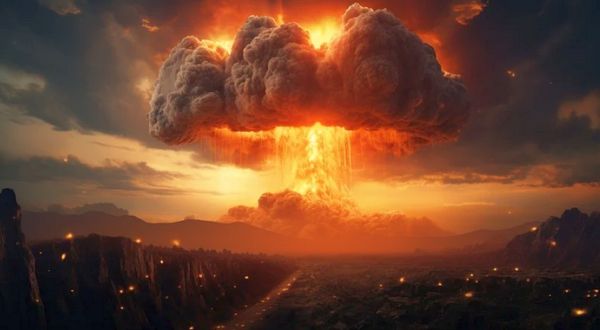Israeli and U.S. military strikes in June have raised the cost to Iran of pursuing nuclear weapons. Proliferators must now weigh military risks along with political and financial costs. Iran may be a special case; it has invested so much that it may try to restart its nuclear arms effort. Other potential nuclear rogues may be more deterred.
The 1968 Nuclear Non-Proliferation Treaty (NPT), a triumph of global diplomacy, bans the acquisition of nuclear explosives by all countries but the P-5 (China, France, Russia, UK, U.S.). The Treaty has 191 adherents; India, Israel, North Korea, and Pakistan are not among them. As Iran shows, however, being an NPT party does not guarantee good behavior.
The NPT is nonproliferation’s soft power, but sometimes harder power is required. In the 1970s Washington wielded its security leverage to pressure Seoul not to buy a French nuclear reprocessing plant and Taipei to shut down a heavy water reactor.
In other cases, preventive strikes have been employed. In 1981, Israeli aircraft partially destroyed Iraq’s French-made Osirak research reactor. In 2003, the U.S. attacked Iraq in part because of a nuclear program that was thought to exist but did not. In 2007, Israeli aircraft partially disabled a reactor in Syria built with North Korean help.
In a few cases involving powerful or friendly states, the U.S. has shied away from military action. China tested an atomic explosive in 1964. India tested one in 1974, spurring Pakistan to begin a nuclear quest.
Over time, the global nonproliferation consensus has grown. India’s test helped lead to the creation in 1975 of the Nuclear Suppliers Group (now 48 states), which sets guidelines for nuclear-related exports. In 1995, the NPT was extended indefinitely. A U.S. initiative to interdict trafficking in weapons of mass destruction has attracted over a hundred parties. The 2015 Iran nuclear accord (Joint Comprehensive Plan of Action) earned international praise.
Many NPT adherents view diplomatic cajoling, political pressure, and sanctions as legitimate tools for nonproliferation. Fewer support military action. UN Secretary General Antonio Guterres said he was “gravely alarmed” by the U.S. use of force in Iran. Even the Saudis voiced “deep concern,” although the Europeans were restrained.
The use of military power on behalf of nonproliferation may spark wider debate. Advocates argue that raising the costs to proliferation will help deter it. This concept is familiar in military strategy. The greater the resistance to aggression, the less may be its likelihood or severity. The concept of raising the cost to aggressors underlies Ukraine’s defense strategy and the West’s military support for Ukraine.
Opponents of using hard power for nonproliferation argue differently. They claim the bombing by Israeli and the U.S. was harmful. Some say it may cause Iran to double-down, seeing nuclear arms as even more vital for security. Other critics worry that Iran may retaliate, leading to an escalation in fighting. Still others assert that Iran is more likely to withdraw from the NPT and end helpful inspections by the International Atomic Energy Agency.
The net effect of the use of force in Iran remains uncertain. Iran has pursued nuclear capabilities for decades, spent tens of billions of dollars, and enriched at least 400 kilograms of uranium to 60 percent U-235. So, even the risk of more attacks might not halt Iran’s nuclear arms efforts. If Iran forges ahead, the West might consider second-best strategies. It could seek to induce Iran to limit the size or potency of any arsenal, perhaps short of Israel’s estimated 90 weapons or Pakistan’s 170. The U.S. could also provide Iran with help on nuclear safety.
No other nonnuclear state has a covert military nuclear effort comparable to Iran’s. This is a good omen. Other potential rogues may view U.S. willingness to strike Iran as steepening any nuclear climb on which they might embark.
Potential proliferators might also weigh the military weaknesses of nuclear weapons. Israel’s nuclear power has not prevented Hamas, Hezbollah, or Iran from threatening it. To counter this risk, Israel relies on nonnuclear strength, from Mossad to F-35s to air defense. In most cases, conventional arms can confer more usable military power than nuclear weapons.
William Courtney is an adjunct senior fellow at RAND and professor of policy analysis at the RAND School of Public Policy. In a career in the Foreign Service, he was deputy negotiator in the U.S.-Soviet Defense and Space Talks in Geneva (on missile defense) and ambassador in negotiations to implement the Threshold Test Ban Treaty.
Click this link for the original source of this article.
Author: RealClearWire
This content is courtesy of, and owned and copyrighted by, https://www.wnd.com and its author. This content is made available by use of the public RSS feed offered by the host site and is used for educational purposes only. If you are the author or represent the host site and would like this content removed now and in the future, please contact USSANews.com using the email address in the Contact page found in the website menu.








